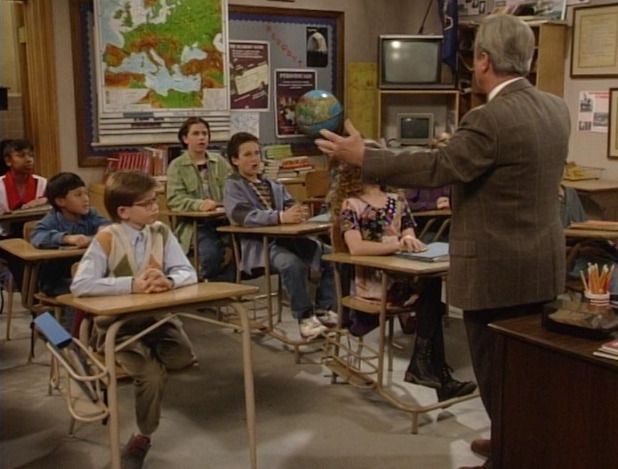Classroom tools at the table

While I've talked a lot about table management and pedagogy, there are a few things I want to highlight that transferred from my time teaching that are also great for D&D groups.
-Seating charts- When I was teaching, it was always a challenge to figure out who should sit where- having two loud, boisterous friends sitting next to each other was a recipe for disaster, and at times I found myself getting pulled into the soap opera that is Middle School drama, with certain kids being highly reactive catalysts if they sat near each other. With D&D, it's good to have awareness of where kids are sitting. Keep in mind things like noise sensitivity, not wanting to be touched, maturity levels and support needs, and access to the door.
-Giving the kids duties- This happens rather organically, but I've noticed that if you give kids a duty, they'll start doing it even without being asked after a while- whether that be making sure everyone has dice (and if they don't, giving them a spare set), keeping a map, or tutoring the less experienced players. The last job is by far the most rewarding to see, and can happen with minimal prompting, I'll just ask a more experienced player to keep an eye on the newer kid and help them with their character sheet, and it has always been a positive experience for both the tutor and the inexperienced player.
-The one on one- This was by far my most useful tool as a teacher- going out into the hall with a kid to have a chat. Removed from the audience, they'd often drop all pretenses, and we were able to have a real conversation. I try to have at least two one on one conversations with each kid per quarter, to get a sense of how they're doing, if there's anything I need to be aware of, and what they want more of out of the game.
-Talking to the parent- When running a social skills group, talking to parents is one of the most illuminating experiences, as they can tell you about what their child is like outside of game, and you can report what's happening in game. Very often it's a positive experience, with parents telling you how much they appreciate what you're doing and how much their kid is opening up thanks to the game. It can also help you craft the game to meet specific goals that may not be immediately apparent.
-”The voice”- Cultivating a powerful teacher voice is something that saved me a number of times teaching. I've rarely had to use it with my social skills groups, but there have been a few times where things were rapidly getting out of control and I needed the group to sit and be quiet to stabilize the situation.
-Check in questions- Every week as a sort of starting ritual, I ask a check in question- Things like, “What class would your character play” or “What is a rumor about your character?” Sometimes I mix it up with more personal aspects, like “Does your character like to jump into a situation, or plan or analyze? What about you?” These help the kids get into the game mindset, while also serving as a fun ice breaker.
-Reviewing last week's material- When I taught math, I found it very important to review last week's materials so the kids could see the connections between what we went over last week, and what we were going over today. By doing this with the last week's plot, you refresh their memory while highlighting key plot points.
-Worksheets- These are not character sheets. I've actually created worksheets for the kids to fill out, as part of their time in the dungeon of bureaucracy, playing 'Cavemen and Canyons' or a feedback form from a mad wizard's theme park. It mixes things up, then gives the kids something to share with each other.
-The friendly introduction- When every kid comes in, I do something to make them feel special and acknowledged. This may range from a goofy exchange or inside joke, a “Oh, thank Pelor, you're here. I have plans that require you.” or “Hey, let's talk on the side, I got an idea for this session and your character...”
-The lesson plan- I almost never went into a class without some sort of lesson plan. I go into the way I do session planning in another post, but it's good to be prepared and not leave everything up to improvisation, unless you're comfortable with that.
-The staff meeting- If you have a co-facilitator, use them. Set up 5-10 minutes after the kids are gone to review what you saw, what's happening next week, and any updates.
These are all tools from the classroom that I've been able to use quite effectively in my groups. Hope they help!